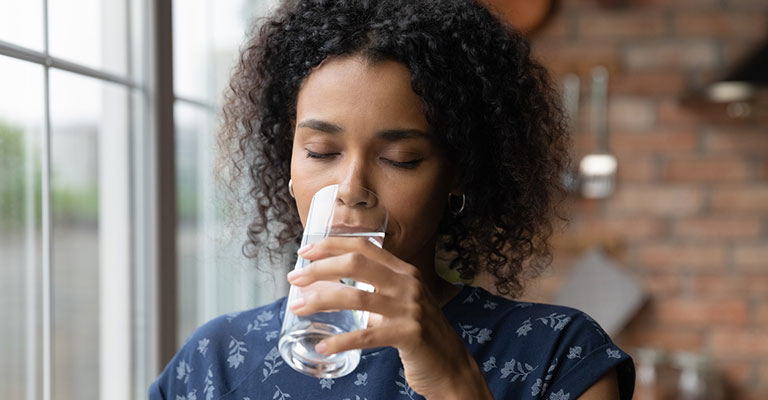Updated by the Progyny Editorial Team — September 2025.
Written in collaboration with Progyny nutritionist, Sally Saleh Kia, MPH, RDN, IBCLC, MCHES
Hydration plays a major role in supporting your overall health — from regulating body temperature, to protecting organs, to supporting digestion. It may come as no surprise, then, that hydration is also essential when you’re trying to conceive.
Drinking enough fluids helps both ovaries and testes function properly. For people with ovaries, dehydration can change cervical mucus — the fluid that helps sperm travel to the fallopian tubes for fertilization. Cervical mucus can also be a helpful tool in predicting ovulation and timing sex to increase chances of pregnancy. When you’re dehydrated, these functions may be affected.
For people with testes, dehydration can lower semen volume and reduce sperm quality.
How much fluid do you need?
Hydration needs vary, but experts generally recommend about 12 cups of fluid per day for people with testes, and 9 cups for people with ovaries. Your needs may change based on exercise, weather, or health conditions. For example, if you have diarrhea, you’ll need more fluids. Alcohol and caffeine can also affect hydration.
Signs of dehydration
Recognizing early symptoms can help you know when to drink more fluids. Common signs include:
- Dark-colored urine (healthy urine is pale yellow, like straw or lemonade)
- Fatigue or irritability
- Headache
- Dry or sticky mouth
Tips for staying hydrated
If you have trouble remembering to drink water, these strategies can help:
- Carry a reusable water bottle throughout the day.
- Add lemon, lime, mint, or frozen fruit for flavor.
- Replace sugary or artificially sweetened drinks with water, sparkling water, or unsweetened, decaffeinated tea.
- Try hydration-friendly options such as decaffeinated tea, seltzer, milk, or 100% fruit or vegetable juice.
- Consider sugar-free electrolyte beverages or coconut water if plain water feels difficult to prioritize.
- Eat more fruits and vegetables, which also provide water and electrolytes — aim for one to two servings with each meal or snack.
Hydration, coupled with vitamins and supplements, is an easy way to support your reproductive health.
If you have questions or concerns, Progyny is here for you. Please contact your Progyny Care Advocate for support.
Disclaimer: The information provided by Progyny is for educational purposes only and is not medical advice. Always consult a qualified healthcare provider for medical guidance.
